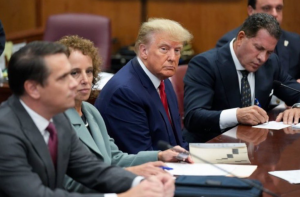A former Uber security head would have to face wire fraud charges for his alleged role in covering up a 2016 hacking that exposed the information of 57 million users, a federal judge ruled on Tuesday, Reuters reported.
Joseph Sullivan had three charges added against him from an earlier indictment by the US Department of Justice in December last year. Allegedly, Sullivan paid two hackers for their silence while simultaneously attempting to keep knowledge of the hack form passengers, drivers and the US Federal Trade Commission.
District Judge William Orrick, who permitted a new trial on a racial discrimination bias against Tesla, rejected the ex-security chief’s claims that prosecutors didn’t adequately justify their allegations that he had concealed the hacking to ensure Uber’s drivers would not leave the platform and continue to pay their service fees.
Also Read: List of all companies providing abortion travel benefits to US employees
Further, Orrick rejected claims from Sullivan that only Uber’s then-chief executive, Travis Kalanick, was deceived and not the drivers or passengers.
In his indictment, Orrick wrote that while the misrepresentations weren’t made directly at Uber’s drivers, it was a part of a “larger scheme to defraud them.” Sullivan is also facing two obstruction of justice charges.
According to prosecutors, Sullivan had arranged for $100,000 in bitcoin as payment to the hackers and had them sign non-disclosure agreements stating that they had not stolen data. Originally indicted in 2020, the case is believed to be the first case of a corporate information security officer being charged with concealing a hacking.
Also Read: Tesla starts new trial in race bias lawsuit
What stands out is that Uber in fact has a bounty program that is designed to reward security researchers for reporting flaws in their systems. Dara Khosroshahi, Uber’s current Chief executive, fired Sullivan after learning of the breach and its subsequent cover up.
This isn’t the first time Uber is in the limelight for hacking. Back in 2018, the rideshare company paid $148 million to settle claims made by all the states of the US that it was slow in revealing that it had been hacked.







